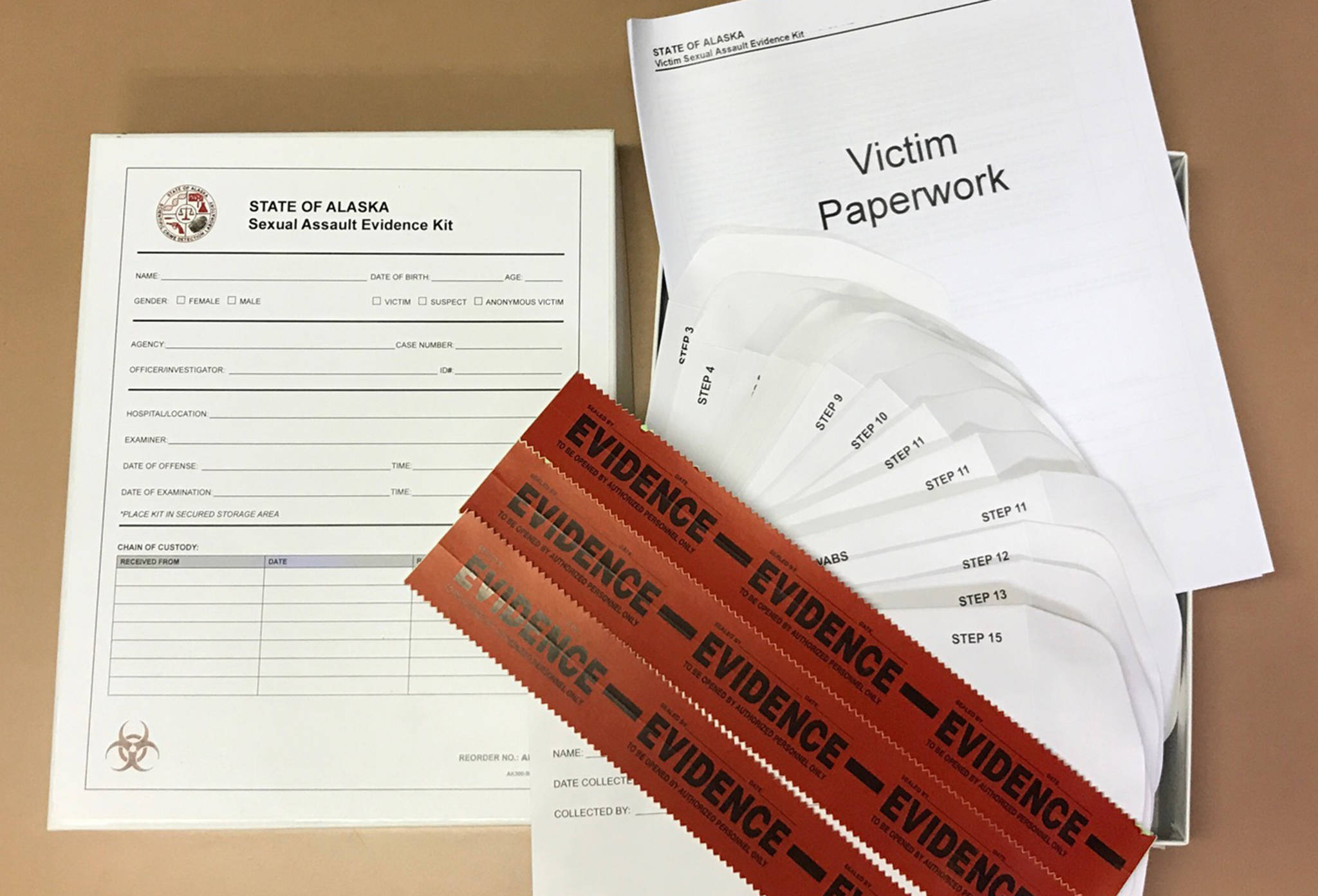The Juneau Police Department is examining the reasons for a backlog of untested sexual assault evidence kits, deputy chief David Campbell told members of the city’s public safety task force Tuesday.
In a noon meeting, Campbell said he is conducting the audit, which is only one-third complete. The audit will determine why police and prosecutors failed to request DNA testing for 203 evidence kits between 2000 and July 2017.
Of those kits, approximately 170 contain physical evidence collected from sexual assault victims. Another 30 contain physical evidence from sexual assault suspects.
The public safety task force discussed the matter after the City and Borough of Juneau Assembly called for an investigation following an Empire report on the backlog. No formal action was taken Tuesday by the task force.
Deputy Mayor Jerry Nankervis told the task force he asked JPD whether there were any instances where officers requested DNA testing and were turned down.
“Are all of your kits that you want to get processed being processed?” he asked, repeating his question to Campbell.
“So far, yes, with a couple of qualifiers,” Campbell said.
While Campbell can’t speak about procedures before 2001, he confirmed that officers are receiving all the rape kit testing they ask for.
Nankervis, a former JPD captain who worked for the department between 1987 and 2011, called that response “encouraging” because it gives context for the backlog.
“My comfort level has gone way up after having a conversation with the police department on this topic,” he said.
Why, then, does a backlog exist?
The preliminary results of the audit indicate the backlog appears to be the result of decisions reached, one at a time, by detectives and state prosecutors. In some cases, the kit came from a victim who later dropped charges. In a few cases, the victim said he or she was intoxicated and couldn’t remember anything about the crime. In several cases, the issue wasn’t whether two people had sex: The issue was about whether that sex was consensual, something physical evidence can’t determine.
Under Alaska law, there is no statute of limitations for sexual assault, which means that an untested kit will remain on the shelf.
Talking to the Empire, Campbell said prosecutors and detectives have until now taken a “micro” view of a particular case. If a kit is helpful to a specific case, it gets tested. If it’s not, it doesn’t.
In the past several years, victim advocates and others have argued for what Campbell calls a “macro” view. They contend that all sexual assault kits should be tested because doing so can match suspects to previously unsolved crimes.
In Anchorage, a serial rapist was sentenced in January to 70 years in prison after being tied to several unsolved rapes using physical evidence from older kits. In Ohio, a DNA cold case task force uncovered 436 serial rapists in Cleveland’s Cuyahoga County alone using information from previously untested rape kits.
Vanessa Nason, a researcher and journalist with the news site MuckRock, uncovered Juneau’s backlog through a state information act request.
“Someone who commits this crime in Juneau can commit this crime in Massachusetts or Texas,” Nason explained. “It very often connects people to multiple crimes and can connect people to future crimes, too.”
Campbell said the macro approach is being adopted by police departments and prosecutors across the country, but it hasn’t been used over the past 17 years in Alaska, when the backlog developed.
“In a perfect world, with unlimited resources, I would say that yes, that is the way we should be going,” he said. “We are in the midst of basically changing mindsets from the micro to the macro.”
Under the state’s current crime-fighting structure, the Juneau Police Department stores the kits and investigates the cases that follow, but it doesn’t actually pay to have the kits tested. That has historically been the state’s responsibility. Campbell said he couldn’t find anyone at JPD who ever received a bill from the state crime lab.
A recently released state report determined that the base price of testing an archived kit is $745, and additional specialized tests can add $1,000 or more to that total. The state estimated an average cost of $1,300 per kit to account for the variations.
Using state estimates, Juneau’s backlog would cost as much as $309,000 to erase, and help doesn’t seem likely from the state. Alaska is facing a $2.7 billion annual budget shortfall, and it has already cut funding for public safety programs as part of an effort to reduce that deficit.
In the meantime, the state is changing some procedures: Police departments are now required to send all newly collected rape kits to the state crime lab in Anchorage for collective storage and tracking.
Campbell said Juneau started that practice Nov. 1, and it may soon be required to ship the backlogged kits north as well.
• Contact reporter James Brooks at james.k.brooks@juneauempire.com or call 523-2258.

